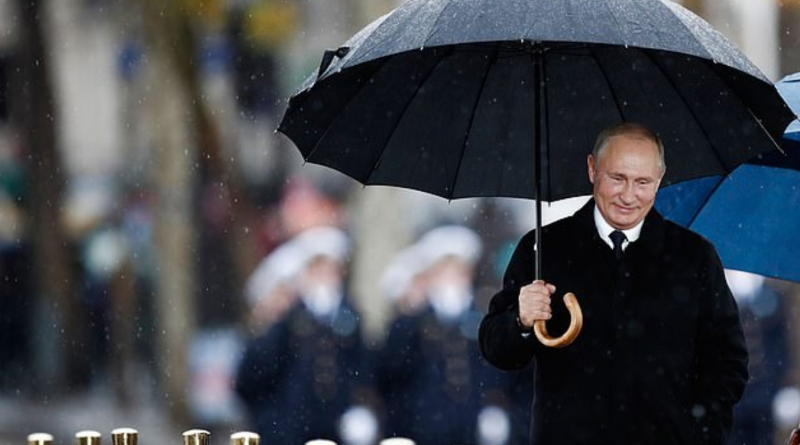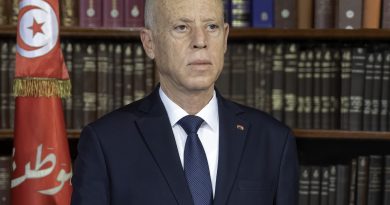Tensions Escalate Between Ukraine and Russia: The Latest Updates
Charleigh Stone
Staff Writer
In its most recent move to counter Russian military buildup near the Ukrainian borders, the United States has pledged to end support for Nord Stream 2, a German-controlled gas pipeline project connecting Russia and Germany, stressing U.S.-German unity if Russia invades Ukraine, Reuters reports. The declaration came during a joint U.S.-German press conference on Monday, February 7.
However, German Chancellor Olaf Scholz did not directly confirm that a Russian invasion would trigger a shutdown of the decade-old, $11 billion project, nor did he mention the pipeline by name during his day-long visit to the White House, Reuters continues. Instead, when asked about using the pipeline project to respond to Russian aggression, Scholz pledged to respond with “necessary sanctions” and “far-reaching measures” in the event of an invasion, confirmed transcripts from the White House. The bilateral conference follows a stream of criticism over Scholz’s failure to respond to Russian aggression as vehemently as other Western allies. Andriq Melnyk, the Ukrainian ambassador to Germany, commented that “this unwillingness of Germany to act preventatively and not to put the Kremlin under extreme pressure is nothing else [than] pure appeasement politics,” says The Washington Post.
Heightened tensions between Russia, Ukraine, and the West come eight years after Russia annexed the Crimean Peninsula in southern Ukraine and backed separatists in the eastern Donbas region. Russian-backed rebel groups have exerted control over the territory since 2014, and at least 14,000 people have been killed since the takeover. Russia has accused the Ukrainian government of failing to implement the Minsk Agreement, a Russo-Ukrainian deal to end the war in the east.
Russia-Ukraine relations have also been complicated by the eastward expansion of the North Atlantic Treaty Alliance to include 14 new countries, including several post-Soviet states. Reuters reports that NATO threatening encroachment towards Russian borders is perceived to be a betrayal of Western promises in the early 90s, which NATO denies. In 2008, Ukraine began the process to join NATO, though plans were briefly shelved following the election of pro-Russian President Viktor Yanukovych in 2010 and resumed following the start of the Russo-Ukrainian war. In December 2021, Russia put forward its conditions for de-escalation, including that NATO deny membership to ex-Soviet countries, roll back the deployment of troops and weapons in central and eastern Europe, institute a ban on U.S. and Russian forces from border areas, and halt NATO military drills near Russian boarders, reports Al Jazeera. The U.S. and NATO, however, have consistently told Russia there will be no concessions on Moscow’s main demands.
New threats of Russian sanctions follow reports by U.S. intelligence analysts that Russia’s military buildup at the Ukrainian border has amassed to 70 percent of the capacity needed to launch a full-scale invasion. While Russia has denied plans to attack, it has been projected that as many as 50,000 civilians and up to 25,000 Ukrainian soldiers could be killed if the invasion occurs. According to The Associated Press, Biden warned Ukrainian President Volodymyr Zelensky of a “distinct possibility” that Russia could take military action against Ukraine in February. The suggestion led to a clash during a meeting at the United Nations, where Russian Ambassador Vasily Nebenzya accused the U.S. of “provoking escalation” through false charges.
Nebenzya also accused the West of bringing “pure Nazis” to power on Russia’s borders and “making heroes out of those peoples who fought on the side of Hitler,” says The Washington Post. His comments followed remarks from U.S. Ambassador Linda Thomas-Greenfield that Russia was “attempting, without any factual basis, to paint Ukraine and Western countries as the aggressors to fabricate a pretext for attack.” She reminded the council of “the pattern of aggression we’ve seen from Russia again and again,” including its 2008 invasion of Georgia and 2014 annexation of Crimea. According to Al Jazeera, however, Ukrainian Foreign Minister Dmytro Kuleba has expressed doubts over U.S. intelligence reports, saying that “Different capitals have different scenarios, but Ukraine is ready for any development. Today, Ukraine has a strong army, unprecedented international support, and Ukrainians’ faith in their country. This enemy should be afraid of us.”
Over the past week, efforts to deescalate tensions have mounted, but progress remains murky. French President Emmanuel Macron reportedly received assurance from Putin that Russia’s military buildup near Ukrainian borders was at a stalemate. Russia has responded that any suggestion of a guarantee was “not right,” although Kremlin spokesperson Demitry Peskov noted that troops were expected to return to Russia at some point, according to BBC News. At a joint press conference with Zelensky, Macron expressed hope for negotiations to move forward between Ukraine and Russia, while Zelensky called on Putin to take concrete steps to resolve the ongoing conflict in Eastern Ukraine.


